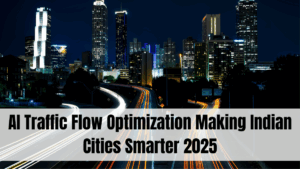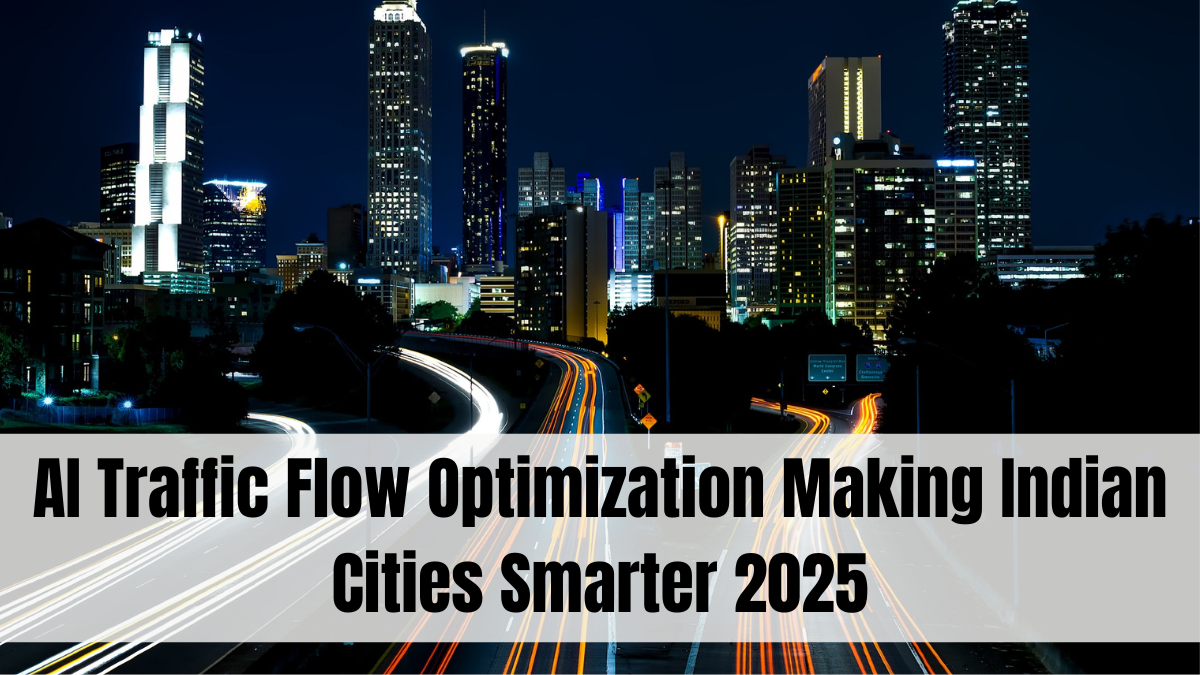Traffic congestion is one of the most pressing challenges in rapidly urbanizing Indian cities. Traditional traffic management systems often fail to adapt dynamically to changing road conditions and traffic volumes. In 2025, ai traffic flow optimization 2025 technologies are revolutionizing urban mobility by leveraging artificial intelligence to monitor, predict, and manage traffic in real time.
This article explores the latest AI-powered traffic flow solutions deployed across India, their working mechanisms, benefits, and future outlook.

The Need for AI in Indian Traffic Management
With a surge in vehicle registrations and expanding urban populations, Indian cities face daily gridlocks, increased pollution, and longer commute times. AI-powered traffic management helps by:
-
Analyzing live traffic data from cameras, sensors, and GPS devices.
-
Predicting traffic jams before they happen using historical and real-time data.
-
Adjusting traffic signal timings dynamically to optimize flow.
-
Facilitating priority passage for emergency and public transport vehicles.
-
Offering commuters real-time route suggestions to avoid congestion.
By transforming static traffic systems into intelligent, adaptive networks, AI reduces travel time and enhances urban livability.
Key AI Technologies in Traffic Flow Optimization
-
Computer Vision: Analyzes video feeds to monitor traffic density, detect violations, and identify incidents promptly.
-
Machine Learning Algorithms: Predict traffic trends and adjust signals proactively.
-
IoT Sensors: Embedded on roads and vehicles to collect granular data on speed, density, and weather conditions.
-
Reinforcement Learning: Enables traffic lights to learn optimal switching patterns through continuous feedback.
-
Mobile Apps and Navigation Integration: Provide commuters with AI-driven route optimization and congestion alerts.
These technologies combine to create a responsive, data-driven traffic ecosystem.
Successful AI Traffic Projects in Indian Cities
-
Mumbai: Deployment of AI-based adaptive traffic signals reduced average wait times at intersections by 25%.
-
Bengaluru: Integration of AI with public transport priority systems improved bus punctuality and flow.
-
Delhi: Use of computer vision for automatic detection of traffic violations increased compliance and eased bottlenecks.
-
Chennai: AI-powered congestion prediction models helped divert traffic preemptively during peak hours and festivals.
Such projects showcase scalable models for other cities.
Challenges in Implementing AI Traffic Systems
-
Data Quality and Coverage: Limited sensor installations in some areas hamper data accuracy.
-
Infrastructure Costs: Upgrading traffic infrastructure for AI compatibility requires significant investment.
-
Integration with Legacy Systems: Existing traffic management frameworks may lack interoperability with AI modules.
-
Privacy Concerns: Managing personal data collected via sensors and cameras demands stringent safeguards.
-
Public Acceptance: Educating citizens and authorities on benefits is necessary for smooth adoption.
Addressing these ensures sustainable AI traffic solutions.
Future Trends in AI-Driven Traffic Management in India
-
Expansion of AI to manage multi-modal transport including e-rickshaws, bicycles, and pedestrians.
-
Smart parking systems integrated with traffic flow to reduce road-side congestion.
-
Use of 5G connectivity to enable faster data transmission and real-time decision-making.
-
Predictive analytics for city planning and infrastructure development.
-
Collaboration with autonomous vehicle technologies for seamless traffic integration.
These innovations promise smarter, safer, and cleaner Indian cities.
FAQs
How does AI optimize traffic flow in cities?
By analyzing real-time and historical data to dynamically adjust traffic signals and provide route suggestions.
Are AI traffic systems already in use in Indian cities?
Yes, major metros like Mumbai, Delhi, Bengaluru, and Chennai have pilot projects and partial implementations.
What data sources do AI traffic systems use?
Traffic cameras, IoT road sensors, GPS data from vehicles and smartphones, and weather sensors.
Will AI reduce traffic congestion significantly?
While not a complete solution alone, AI has been proven to reduce congestion and improve commute times notably.
Is AI traffic management expensive to implement?
Initial investments are high, but long-term benefits in efficiency and pollution reduction justify costs.
Click here to know more.
